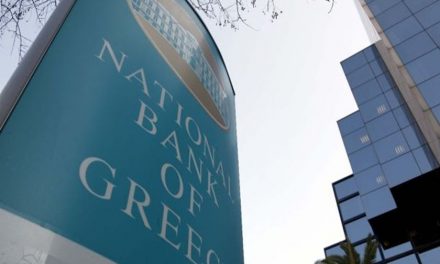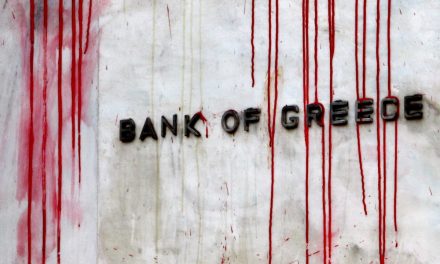Greek bonds fell, with the 10-year yield climbing the most since May 2012, amid speculation an early presidential election will trigger political turmoil in the nation that sparked the euro region’s debt crisis.
The yield on three-year notes, issued in July as part of Greece’s return to capital markets, surged above the longer-maturity rates on concern Prime Minister Antonis Samaras’s decision to bring forward the selection of a head of state will prompt a general election. That comes at a time when the anti-bailout Syriza party leads opinion polls. With demand for safer assets rising and Europe’s inflation outlook crumbling, yields from Germany to France dropped to records.
“We have seen some heavy selling in Greece,” said Luca Cazzulani, a senior fixed-income strategist at UniCredit SpA in Milan. “Investors are pretty worried. We are seeing an increase in risk aversion, which is pushing core yields down.”
Greece’s 10-year yield rose 192 basis points, or 1.92 percentage point, in the week to 9.15 percent at 5 p.m. London time yesterday, the biggest weekly increase since May 2012. The 2 percent bond due in February 2024 fell 9.73, or 97.30 euros per 1,000-euro ($1,244) face amount, this week, to 64.95.
The three-year rate surged 512 basis points to 11.13 percent this week. A so-called inverted yield curve may reflect a rising repayment risk.
Oil Prices
Falling oil prices helped depress Europe’s inflation outlook, increasing demand for fixed-income assets and stoking bets that the European Central Bank may extend its asset-purchase plan to include government bonds in order to boost prices.
The yield on benchmark German 10-year bunds dropped 16 basis points this week, the steepest decline since the period ended Sept. 27, 2013, and fell to a record 0.618 percent yesterday. Rates from Austria, Belgium, Finland, France, Ireland and the Netherlands also dropped to all-time lows.
The German five-year break-even rate, which uses the difference in yield on conventional notes and index-linked securities to gauge inflation expectations, fell four basis points to minus 0.11 percentage point this week and dropped to minus 0.15 percentage point, the lowest since at least December 2008.
Greek government securities returned 2.8 percent this year through Dec. 11, Bloomberg World Bond Indexes show. That’s down from 34 percent in the year through Sept. 5. German (GDBR10) government bonds returned 9.4 percent, pushing the average yield to a record-low 0.42 percent.



















